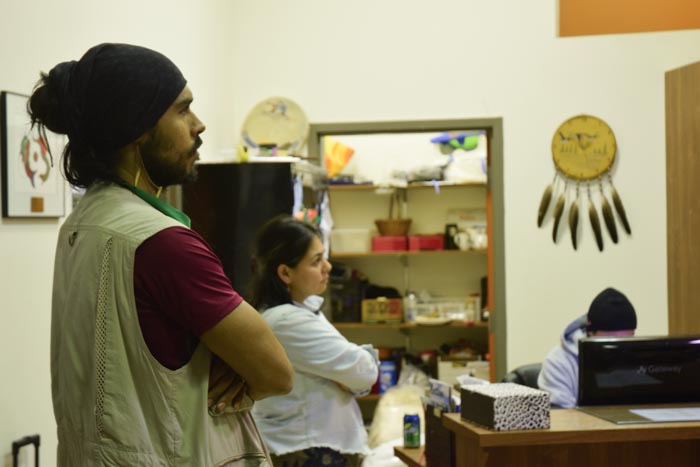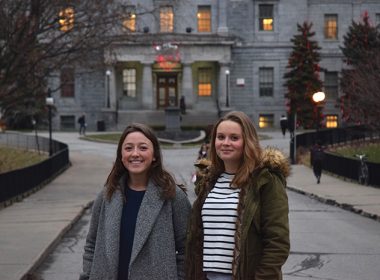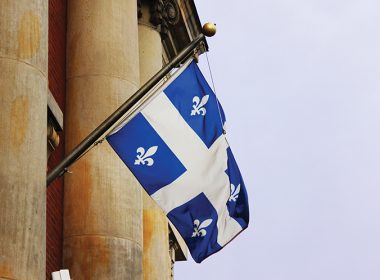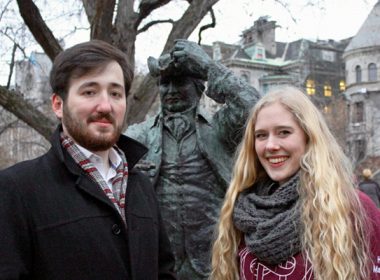On Nov. 23, Montreal’s Native Friendship Centre was filled with warmth, food, and historical lessons as McGill students and Montreal residents attended an ‘Anti-Colonial Evening,’ organized by Le Frigo Vert and the Quebec Public Interest Research Group (QPIRG) at Concordia. Instead of partaking in a traditional American Thanksgiving celebration, over 100 people of all ages gathered to learn about colonialism and the importance of resisting land fraud when celebrating the holiday.
Filing in from the windy Montreal weather, the evening’s attendees enjoyed a variety of foods from local cooperatives, including Food Against Fascism and McGill’s Midnight Kitchen. Following the dinner, Submedia TV, a grassroots social justice film collective, presented clips from films on social justice and Indigenous issues. The videos provided a look into the harms of invasive infrastructure plans for Indigenous land, such as the Dakota Access Pipeline and the Alton Gas brine dumping site. These clips gave attendees a glimpse into the struggles many Indigenous populations face, and the continued pervasiveness of colonialism in North America.
For Harley Roquentin, an organizer of the night and member of the Board of Directors of QPIRG Concordia, the mainstream acceptance of Thanksgiving as a peaceful celebration hides the history of colonialism that led to the holiday’s creation.
“The myth that people were kind to Native Americans [is] so ingrained within Thanksgiving, when really [colonial settlers] committed genocide,” Roquentin said. “That’s not something we should be celebrating. It’s an aspect of humanity and recognition of Indigenous peoples that we’re aiming to do here today.”
According to event attendee Sabrina Xuan, U3 Anthropology, early childhood education played a central role in her understanding of Thanksgiving as a holiday. Throughout her schooling, she repeatedly heard tales of settler-Indigenous cooperation and gratitude, and came to accept this as the truth. The ‘Anti-Colonial Evening’ countered this narrative, sparking discussion about mainstream misrepresentations of North American history.
“I grew up going to an American school, and we were all given a narrative about Thanksgiving and Columbus Day being positive events intrinsic to national development,” Xuan said. “When you know there’s more to the story, I think you should do all that you can to support what it’s really like.”
By the end of the night, everyone left with full stomachs, open minds, and new motivation to get involved in decolonization efforts. Coco Graziani, a recent McGill graduate (in Psychology and English Literature) who attended the event, reflected on the importance of understanding one’s place in the anti-colonial movement.
“It seems to me it’s a special time in the evolution of the way people think,” Graziani said. “I wasn’t aware of the movement or history a few years ago, but I have a feeling that right now it’s reaching everyone. When supporting efforts for decolonization, showing up as settlers is important. It shows one’s effort in knowing more, and recognizing the resiliency of Indigenous people.”









